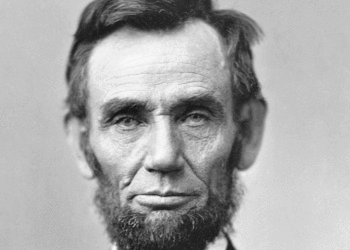An Orthodox rabbi in Israel came under verbal attack after making some laudatory comments about Jesus
By MOSHE GIT
Recently, Rabbi Shlomo Riskin, of the Orthodox settlement of Efrat on the West Bank, caused a stir in traditional circles by referring to Jesus as “Rabbi Jesus.”
In a video posted to YouTube, Riskin said he has been “truly fascinated by the personality of Jesus, whom certainly to myself I have always referred to as ‘Rabbi Jesus,’” ever since taking a university course about the gospels.
Riskin referred to Jesus as a “model rabbi in many counts,” and said, “I have constantly come back to the study of his personality and his teachings, which are very strongly rooted in Talmudic teachings.”
In the face of scathing criticism from Orthodox quarters, Riskin responded that the video was “edited carelessly and posted on YouTube by an organization that omitted a significant part of my message.”
He explained, as Haaretz reported: “The fundamental differences between Judaism and Christianity, which I always emphasize in my talks with Christian groups, were completely absent from the edited version [of the video].” (Riskin’s response to the criticism of the original, edited video can be viewed here.)
Historically, Judaism has never accorded Jesus any measure of respect. In fact, his name was so loathsome that even its very mention was a no-no. To avoid using it, Jews referred to him as Oto Ha’ish, roughly translated as “That Man.” In old Jewish literature he was referred to with demeaning names, such as “vermin” or “bastard.”
Things seem to have changed in the last few decades, especially in the United States, as liberal and assimilating Jews have become used to interacting with Christians. In interfaith meetings, Jews, acting in a spirit of fraternalism, found it difficult to uphold the old demeaning attitude, and although still denying the divinity of Jesus, began referring to him as a great rabbi, or even adopted the Muslim-generated title “prophet.”
 A sign advertises a gallery selling icons, rugs and jewelry on the Via Dolorosa, in the Muslim Quarter of the Old City in Jerusalem. Christian pilgrims visit this street and follow the route that Jesus is said to have traveled from his condemnation by Ponitus Pilate to his crucifixion. In traditional Judaism, hostility has characterized references to Jesus, according to Moshe Git. (Photo: Mordecai Specktor)
A sign advertises a gallery selling icons, rugs and jewelry on the Via Dolorosa, in the Muslim Quarter of the Old City in Jerusalem. Christian pilgrims visit this street and follow the route that Jesus is said to have traveled from his condemnation by Ponitus Pilate to his crucifixion. In traditional Judaism, hostility has characterized references to Jesus, according to Moshe Git. (Photo: Mordecai Specktor)
Typical of this trend is the commendation by Burton L. Visotzky, a professor at the Jewish Theological Seminary, in which Jesus is referred to as “rabbi,” which appears on the cover of the monumental book about Jesus, A Marginal Jew: Rethinking the Historical Jesus, by John P. Meier, a Catholic scholar.
However, Orthodox circles still held the line; and to the extent that this line has been breached, if at all, any positive reference to Jesus has been subtle.
But although the urge of the liberal circles to address Jesus as rabbi is understandable, this doesn’t stand up before scrutiny of the facts.
As the title of Meier’s book indicates, Jesus was no more than a marginal Jew. He left no imprint on Jewish religious writings or thought of the time. Although the name Jesus is mentioned a number of times in the Talmud, scholars believe that those mentions are muffled, late echoes of Christian beliefs about Jesus, and are on the level of midrash (legend).
The Talmudic references to Jesus cannot be taken at face value; in fact, Rabbi Yehoshua Ben Prachya, who is said in the Talmud to have interacted with Jesus, actually lived about 100 years before Jesus.
Thus, there is no evidentiary basis to call Jesus a rabbi. There is no substantive basis as well. Most of what is attributed nowadays to Jesus stems from dogmas and accountings that significantly postdate the period of the historical Jesus. In fact, the New Testament was canonized after the Council of Nicaea, which took place at the beginning of the fourth century.
Moreover, on a technical basis, Jesus of Christianity cannot be accepted as a Jewish rabbi because, according to Christian theology, he didn’t have an earthly father. It actually would be an insult to Christianity for Jews to deny his birth to a virgin and accept Jesus as a rabbi.
We, as Jews, are proud that a Jew made a huge imprint on society. Jesus, the Jew, perhaps; Jesus, the rabbi, no.
***
Moshe Git lives in Minnetonka.









 A sign advertises a gallery selling icons, rugs and jewelry on the Via Dolorosa, in the Muslim Quarter of the Old City in Jerusalem. Christian pilgrims visit this street and follow the route that Jesus is said to have traveled from his condemnation by Ponitus Pilate to his crucifixion. In traditional Judaism, hostility has characterized references to Jesus, according to Moshe Git. (Photo: Mordecai Specktor)
A sign advertises a gallery selling icons, rugs and jewelry on the Via Dolorosa, in the Muslim Quarter of the Old City in Jerusalem. Christian pilgrims visit this street and follow the route that Jesus is said to have traveled from his condemnation by Ponitus Pilate to his crucifixion. In traditional Judaism, hostility has characterized references to Jesus, according to Moshe Git. (Photo: Mordecai Specktor)









